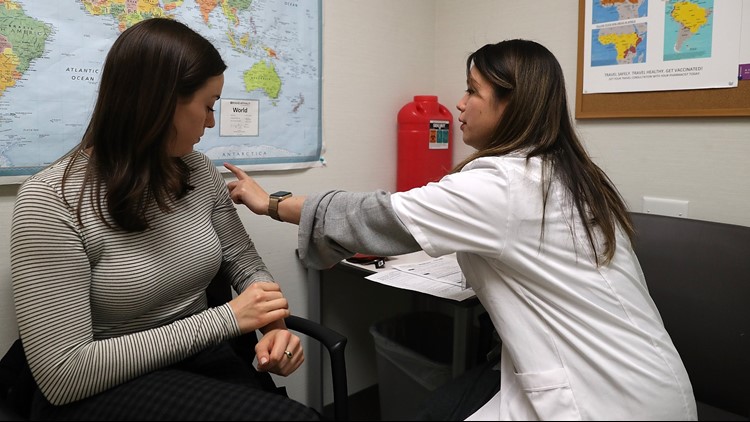It's already time to start thinking about the upcoming flu season, which can begin as early as October.
Last year's flu hospitalized more than 700,000 people, according to the Center for Disease Control and Prevention (CDC). Close to 180 children died from the flu last season, approximately 80 percent of whom did not have the vaccine.
Here are 5 things to know before flu season strikes:
When is flu season?
Every fall and winter the flu season returns and can last up to six or seven months. The CDC says people can contract the flu as early as October and as late as May. Although the season runs through most of the fall and winter, the peak season strikes between December and February.
When should you get vaccinated?
Start thinking about getting a vaccination now. The flu vaccine can take two weeks for the antibodies to protect the body, according to the CDC. People should get a vaccine before the flu begins spreading in their community.
Young children, people 65 or older, pregnant women and people with underlying illnesses are categorized as vulnerable populations and should get the vaccine as soon as possible.
Who should get the flu vaccine?
Everyone six months and older. The CDC recommends that everyone should get the flu vaccine each year.
People with severe or life-threatening allergies to the vaccine should not get the vaccine. Not sure what ingredients are in the vaccine? Check here.
The CDC has a list of all FDA-approved vaccines offered for the upcoming flu season.
What is FluMist?
FluMist is a nasal spray recently recommended for regular use. Although the spray may be the first choice for children looking to avoid needles, the American Academy of Pediatrics recommends getting the vaccine through a shot, based on data showing was not effective against some strains of the flu.
“It’s not dangerous per se or ineffective, we just don’t have the experience and confidence for the nasal spray to protect against one of the most commonly circulated strains,” said Dr. Wendy Sue Swanson, a pediatrician at Seattle Children’s Hospital.
What are the best practices to prevent the flu?
Easy steps can and should be taken to protect against the flu beyond getting the vaccine. Here is the CDC's list of "good health habits" to help prevent the flu:
- Avoid close contact
- Stay home when you are sick
- Cover your mouth and nose
- Clean your hands
- Avoid touching your eyes, nose or mouth
- Practice other good health habits



